- Home
- Roy J. Snell
Riddle of the Storm Page 2
Riddle of the Storm Read online
Page 2
CHAPTER II IN SWIFT PURSUIT
When he fell asleep in his airplane, Curlie Carson was many miles fromany human habitation, in the heart of a polar wilderness. In thatwilderness foxes barked and gaunt wolves howled. An Arctic gale sent snowrattling against his window. And yet he slept like a child in a trundlebed. A few hours of rest, and then he would, granted the storm had ended,greet the dawn high in air.
Mid-afternoon next day found him circling above the shore of Great SlaveLake for a landing.
"Gas cache here," he told himself. "Just gas up and be away to FortResolution. Far as Speed got, I'm sure, with all his flying in the storm.My record's as good as his. Contract's safe enough yet."
Ah yes, the contract. How they all worked for that, the mail contractfrom Edmonton to the Arctic! A three year contract, it was to be given tothe company that made the best flying record this season. At presentCurlie's own company, Midwestern Airways, was a few notches ahead. Butone bad break, and the Trans-Canadian, the rival company, would beatthem. Only three weeks remained.
"It's a race, a race for a grand prize," he told himself. "And we mustwin!"
Up to this moment the boy had a right to be proud of his own record. Theyoungest pilot on the route, only a substitute for a disabled pilot ofmore mature years, he had exceeded them all in miles flown and servicerendered in this wild northland. For all this, his thoughts at thismoment were humble ones. Full well he knew the treachery of the skies.
His skis bumped. They bumped again three, four times, and his plane wentgliding over the snow. With consummate skill he brought the great bird torest exactly opposite three steel drums resting on a high bank at thelake's edge.
Many gas caches such as this had been established during the season ofopen water when river and lake steamers might operate.
With a rubber hose for siphoning in his hand, the boy climbed the steepbank. But what was this? In a sheltered spot he came upon a footprint inthe snow. Consternation seized him. Had some one been there before him?This was his company's gasoline. None other had a right to it.
"Some trapper passing this way," he reassured himself.
His hopes were short-lived. One kick at each hollow-sounding drum and heknew they had been robbed.
Who was the guilty one? Speed? No, Speed was an honorable man! The GrayStreak, phantom of the air? That was the answer.
"This must be stopped!" he told himself stoutly. "Not enough gas to reachthe next port. And some unfortunate one may be waiting at this moment formy plane to carry him to the hospital. They can't realize what it means."
Down deep in his heart he was convinced that they, the pilots of the GrayStreak, did know what it meant. They were outlaws, fugitives fromjustice, and did not care.
"When they are caught there will be a fight. Well, then, welcome the day!The airways of the North must be kept open to those who have at heart thehighest good of all."
Having made this declaration of war, that in time was to lead him over avast wilderness into many perils, he slid down the bank to climb into thecockpit, prepared to make the most of his scant supply of gas.
Three hours later, just as dusk was approaching, he was circling oncemore. Less than a gallon of gas remained in his tank. Fort Resolution wastwenty miles away. Night was coming on.
"That means a day lost, a bad record, a black mark, a long loss in thecontest!" he exclaimed almost savagely. "And all because some one caresnothing for the welfare of others. Truly the running down of such men isa task worthy of any man's steel."
Scarcely had his plane come to rest than fresh perils threatened. Therecame a strange sound from the bank of the lake.
"What can it be?" His heart skipped a beat. Instinctively he put out ahand for a stout yew bow and a quiver of arrows that always hung besidehis cabin door, for like his friend Johnny, Curlie, as you will recall,was an expert bowman.
In ever increasing volume there came to his ears the sound of crackingand crashing.
"Sounds like a forest fire," he told himself. "But there is no fire. Likea thousand range cattle. But there are no cattle. What can it be?"
Soon enough he was to know. From the brush that grew by the shore boundeda brown mass with four short legs and a tossing head.
"Buffaloes!" He was amazed. His amazement grew. Three, six, nine, twenty,fifty, a hundred of these ponderous creatures landed upon the ice, thencame plunging toward him. In a space of seconds, hundreds more joinedthem in wild stampede.
"They are mad with fear!" He was all but in a panic himself. "What am Ito do? The plane will be wrecked. It will be laid up for weeks; thecontest lost, everything lost!"
He broke off short. The thread of an old prairie-buffalo story hadentered his mind.
"These are woods-buffaloes," he told himself. "But buffaloes must be thesame everywhere. I can but try."
Gripping his bow, he stepped boldly out from his plane and walked likesome young David to meet the onrushing throng. He was a full thirty yardsfrom his plane, the foremost buffalo scarcely more than that from him,when with heart pounding painfully against his ribs, but with fingersthat perfectly obeyed his will, he paused to set a steel pointed arrowagainst his bowstring. Then he took one long breath before the test whichmust mean victory or defeat.
Somewhere in a book of frontier-day tales, he had read an account of theremarkable manner in which the Red Man, when in danger of being trampledto death by a thousand stampeding buffaloes, had saved his life. He wasnow prepared to put this practice to the test. It seemed a desperatemeasure--just how desperate he had not time to judge.
Gripping his bow that was capable of burying an arrow in the heart of anywild creature, he stood quite still until the foremost buffalo, apowerful beast with gleaming horns, was within ten paces of him. Then,quickly bending his bow, he let fly.
No effect. The buffalo came straight on. The thundering herd was behindhim. Already the cloud of snow that rose before them was obscuring hisvision. Still there was time for retreat to the plane. Once in the cabin,he would be safe from the murderous tramp of their axe-like hoofs. Butthe plane! It would be wrecked.
He did not retreat. Standing his ground, with incredible rapidity hefired a second arrow and a third.
The very breath of the foremost buffalo was upon his cheek when with aclatter and a thud it fell at his feet.
And now the real test of the Red Man's ancient plan of action was athand. No longer was there opportunity for retreat. The herd was upon him.Through the cloud of snow he saw it but dimly. The sound of clashinghorns and cracking hoofs was deafening. Casting himself flat in the snow,directly back of the fallen monarch of the forest, he awaited theoutcome.
Without knowing why, he began to count. Perhaps he was counting his ownwild heartbeats. "One, two, three, four, five." Would it work? "Six,seven, eight, nine, ten." Would he be trampled by those hoofs? "Eleven,twelve, thirteen, fourteen, fifteen." No time to think of that now.
He felt rather than saw, so dense was the cloud of fine snow, that theherd had divided, that the buffaloes were passing in two columns, one tothe right, the other to the left of their fallen leader. They werefollowing the manner of their kind as recorded in that story of otherdays.
"Thank--thank God!" he breathed.
His plane now was, he hoped, quite safe. It was headed toward the herd.Divided, they would pass to right and left of it. They would divide for afallen comrade. Would they have done the same for an airplane? Who couldtell?
Lying there alone while the onrushing herd whirled by, Curlie realized asnever before what a joyous thing it was just to live, what a pricelesspossession the great Father had bestowed upon him when He breathed thebreath of life into his lungs.
The sound of horns and hoofs was fading away. The last member of the herdhad passed, or he thought it had.
Rising stiffly, he put out his hand for his bow. The snow was settling.At his feet lay a dark mass, the dead buffalo. At his back loomed a graybulk, his plane,
apparently unharmed.
His thoughts regarding the buffalo were sober ones. These buffaloes, herealized, now that there was time to think of it, were not in every senseof the word wild buffaloes. They ranged a wide preserve. They werewatched over by buffalo rangers. They might not be killed except in agrave emergency. One who did kill a woods-buffalo was liable to a term inprison.
"But this," he assured himself, "was a grave emergency."
But what was this? Even as he stood there thinking there came the crackof hoofs once more. A lone buffalo was passing. A youngster, half-grownand almost spent, he limped painfully after his fast disappearingcompanions.
And after him came gray streaks in the failing light. Once more the boy'sbow sang. A gray form plunged to the snow and went rolling over and over.A second followed the first. He, too, had felt the sting of the boy'sarrow. And now they were gone, all gone. The tumult died to a murmur,then silently ceased to be.
"Wolves," the boy grumbled, as he touched a gray form at his feet, "thescourge of the North, killers of all that is good, beautiful and usefulamong living things. I did what I could for that poor, limping youngbuffalo. Here's hoping it was enough. If it was, it evens matters up." Helooked at the fallen buffalo.
"Too bad," he murmured, "but there was no other way. That plane meansmore, a hundred times, to human kind than does a buffalo. It has savedhuman lives, by transporting them to hospitals. It will save others and,please God, I shall have a part."
Having in this manner adjusted his thoughts and feelings regarding hisimmediate surroundings, he considered the future.
Prospects were not bright. "No gas," he told himself. "It's a march downthe river in the dark for me.
"Oh, well. Munch a chocolate bar and some crackers. Hate to leave the oldplane. Whew! How good the old feather robe would feel!" He stretched hisweary muscles.
"Wolves down the river at night. But I'd fix 'em!" He patted his bow.
A brief inspection of his plane told him that all was well. "A fortunateescape. And now, eats."
He took his time about his meal. The moon would be higher later in thenight. Plenty of time anyway. No one would start back with him to bring adog sled load of gasoline to his plane before dawn.
He was just pushing away the warm robe he had drawn over his knees when acurious sound reached his ears, a clank-clank like the moving of gears.
"How strange!" he exclaimed. "Up here close to the Arctic Circle. What anight! Will wonders never cease?"
A low dark bulk came gliding over the ice. The clank-clank grew louder.
"It's a tractor!" he told himself, only half believing. "But here!Hundreds of miles beyond the end of steel! Who would believe it?" He wasforced to believe, for, before he could realize it, the thing was uponhim.
Suddenly the clatter and clank ceased. "Hello there!" came in a cheeryvoice. "What you camping here for? Resolution is just around the corner.
"Oh, it's you, Curlie Carson?"
The newcomer had dismounted and approached on foot.
"And you, Doctor LeBeau!" came from the boy. "I'm surely glad to see you.
"But that thing--" he pointed at the tractor. "What do you do with that?"
"Many things, my boy. Very useful. Snake out logs. Launch boats. Plentyof work. Just now I am coming from moving an Indian family to their newhome seven miles away. Cabin was twelve feet square. Just slid skidsunder it, hitched on and moved 'em, house, furniture, bag, baggage andbabies. Not so bad!" He laughed a merry laugh.
"But answer me. What you doing here?"
"Out of gas."
"Out of gas!" The doctor whistled. "Thought you were Old Man Preparednesshimself."
"So did I. But when your gas cache has been robbed? What then?"
"Robbed?"
Curlie told him the story of the outlaw plane and the missing gas.
"That's bad!" exclaimed the doctor. "Have to put a stop to that!Dangerous people who would leave some poor aviator to starve hundredmiles from anywhere. Go after him!"
"I will if there's a chance."
"But now? Want a tow to town?"
Curlie looked at the tiny tractor, the smallest made, then at his greatairplane. He laughed. "Seems a bit odd. Guess you could do it, though."
"Sure could. Safest way, too. Could give you my gas. Not safe flying atnight, though.
"Tell you what!" The doctor's tone was kindly. "You roll up in yourfeather robe there in the cabin. I'll tow you in. You'll wake up inResolution. You look like you needed sleep."
"I'm asleep standing up just now! But you?"
"I'm O.K. We sleep all hours up here. Besides, you fellows have done alot for us; brought the world to our door, that's what you've done. Justas well do a little something for you."
So it happened that Curlie arrived at Fort Resolution during the weesmall hours of the night. After sleeping straight through until morning,he was as ready as ever for that which a fresh day might bring.
That day passed uneventfully. The dawn of the second day found Curlieonce more in the air. He was headed south.
All the glories of the great white wilderness lay beneath him. The gloryof the perfect day, sky filled with drifting clouds, air with a tang allits own. But none of these things held the boy's attention.
His thoughts were divided between his immediate task, the piloting of hisplane, and that which lay in the immediate past and the probable future.
At Resolution he had met Speed Samson, his rival. Great had been theother pilot's astonishment when told of Curlie's adventure with the "GrayStreak."
"So it's true after all!" Speed had exclaimed. "There _is_ a planerunning wild in this wilderness. The pilot's living off other men's foodcaches, like as not, and using others' gas."
"Yes," Curlie replied. "What are we going to do about it?"
"Wait for orders."
"Yes, I suppose so," the boy agreed slowly. By nature he was a person ofaction. "But suppose we come upon that 'Gray Streak' before orders reachus?"
"Pass 'em up. Let 'em go. That's me. My record, the record of my company,the mail contract's at stake.
"And," he added, meaning to be truly generous, "much as I want to winthat award for our company, I'd advise you to do the same."
"It would count in your favor if you drove such a menace from the air orbrought them to justice," Curlie said thoughtfully.
"If! Pretty big IF, boy. And if you fail, you may be in the stickssomewhere with busted landing gear, out of the running. See?" Curlie didsee. And for the time being this seemed good counsel. Long and soberthinking had left the matter unsettled in his mind.
One item that weighed heavily on the safety side was the fact that hecarried in his plane that which was to prove of great value to his friendJohnny Thompson and all the world as well--pitchblende.
The venerable giant of a prospector, Sandy MacDonald, with whom JohnnyThompson worked, had prepared his samples sooner than Johnny had thoughthe might. He had sent those bits of rocks, that gave promise of producingmineral worth a million dollars an ounce, over to Resolution. They werenow in the fuselage of Curlie's plane.
"Guard them well," had been the prospector's last word of admonition."Those samples are pitchblende. From pitchblende comes radium. And radiumhas been a boon to mankind. Through its mysterious rays of light it hascured thousands of that most dreaded of diseases, cancer. If we can butdiscover a cheaper supply, we will be benefactors of the whole race. Takethem to Edmonton. There's a laboratory there. If they are not equipped toanalyze them, they'll send them on. In time you'll bring us the result.And may God speed your flight!"
"May God speed your flight." Curlie seemed to hear those words now and tofeel the gentle touch of a powerful hand on his shoulder.
"This is important," he told himself. "I must not fail him. The pay issmall. The reward may be very great. We--"
His hands gripped the wheel tightly. A great white cloud lay directlybefore him. Out of that cloud had come a plane. The air was clear, theplane not far distant. His ey
es could not deceive him.
"Jerry!" he shouted to the mechanic at his side. (He had taken Jerry onat Resolution.) "Jerry, that's the 'Gray Streak'!"
"Absolutely!" Jerry straightened up in his place.
The young pilot's mind became a battle field of conflicting emotions.Safety, sure reward, the good of his company, his own personal gloryseemed to lie upon the side of his nature that whispered: "Keep straighton. Let them go their way."
"And there is the pitchblende, the radium," he said aloud.
At the same time he appeared to hear a voice say, "Times come in ourlives when the good of scores, hundreds, perhaps thousands we have neverseen, may never see, drives from our minds that which seems good for usand those best known to us. When that time comes we must act for the goodof all."
"Who said that?" he asked himself. He could not answer. Somewhere in thepast it had been stowed away in the recesses of his mind. Now here itwas. It was as if God had spoken.
"Jerry," he shouted, "we've got to go after them! Follow them to the end.Find their hide-out. Bring them to justice!"
"Absolutely!" Jerry turned his face about to display a broad grin."Absolutely, son!"

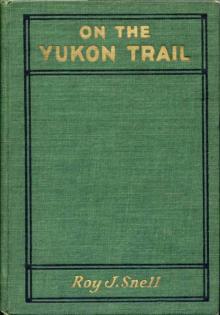 On the Yukon Trail
On the Yukon Trail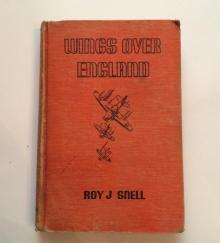 Wings over England
Wings over England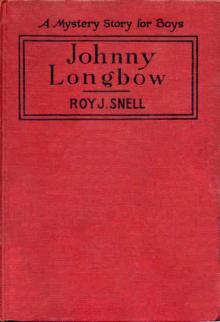 Johnny Longbow
Johnny Longbow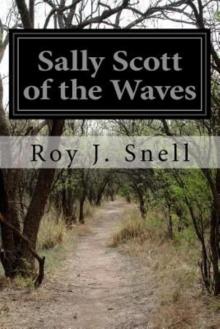 Sally Scott of the WAVES
Sally Scott of the WAVES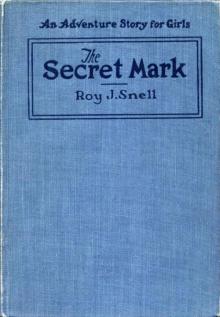 The Secret Mark
The Secret Mark Betty Leicester's Christmas
Betty Leicester's Christmas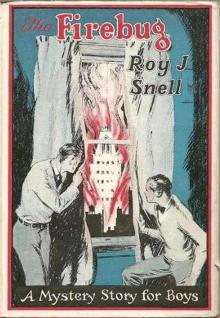 The Firebug
The Firebug Minnie Brown; or, The Gentle Girl
Minnie Brown; or, The Gentle Girl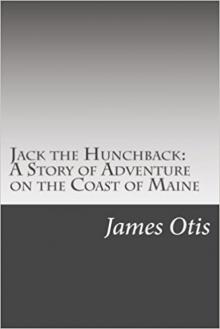 Jack the Hunchback: A Story of Adventure on the Coast of Maine
Jack the Hunchback: A Story of Adventure on the Coast of Maine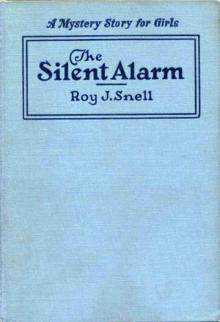 The Silent Alarm
The Silent Alarm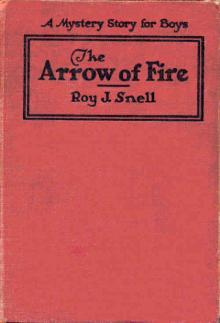 The Arrow of Fire
The Arrow of Fire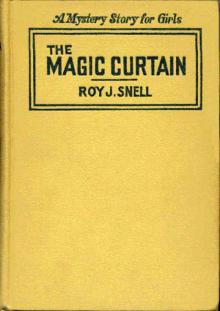 The Magic Curtain
The Magic Curtain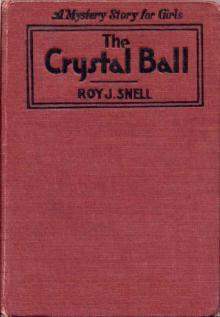 The Crystal Ball
The Crystal Ball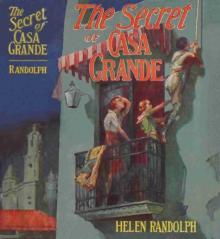 The Secret of Casa Grande
The Secret of Casa Grande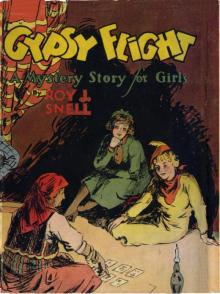 Gypsy Flight
Gypsy Flight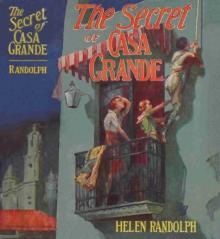 The Mystery of Carlitos
The Mystery of Carlitos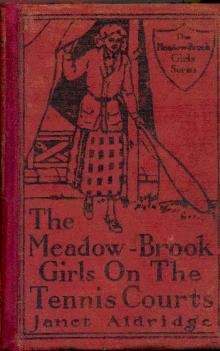 The Meadow-Brook Girls on the Tennis Courts; Or, Winning Out in the Big Tournament
The Meadow-Brook Girls on the Tennis Courts; Or, Winning Out in the Big Tournament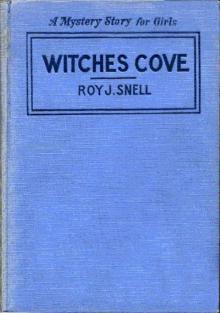 Witches Cove
Witches Cove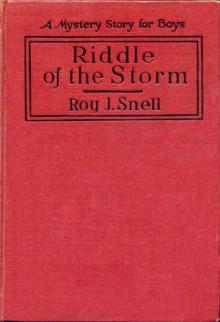 Riddle of the Storm
Riddle of the Storm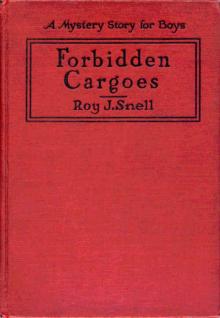 Forbidden Cargoes
Forbidden Cargoes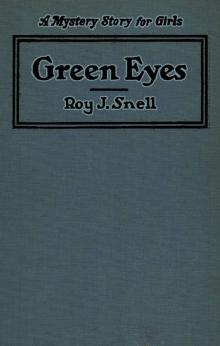 Green Eyes
Green Eyes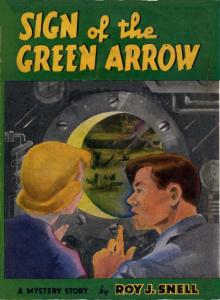 Sign of the Green Arrow
Sign of the Green Arrow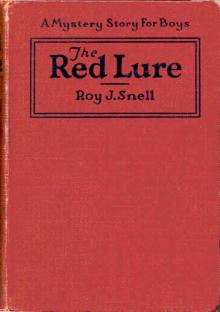 The Red Lure
The Red Lure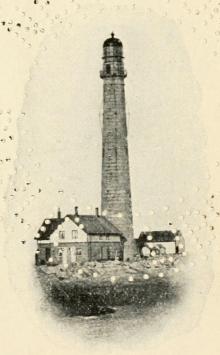 The Light Keepers: A Story of the United States Light-house Service
The Light Keepers: A Story of the United States Light-house Service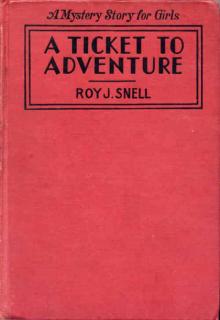 A Ticket to Adventure
A Ticket to Adventure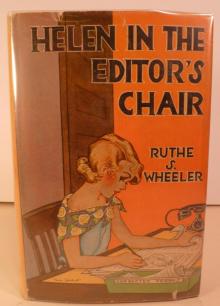 Helen in the Editor's Chair
Helen in the Editor's Chair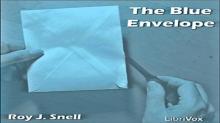 Blue Envelope
Blue Envelope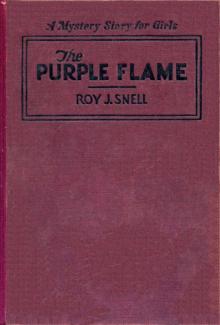 The Purple Flame
The Purple Flame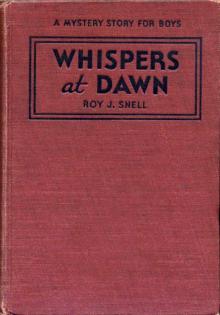 Whispers at Dawn; Or, The Eye
Whispers at Dawn; Or, The Eye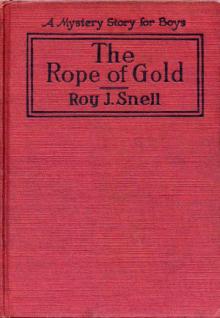 The Rope of Gold
The Rope of Gold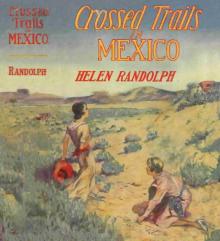 Crossed Trails in Mexico
Crossed Trails in Mexico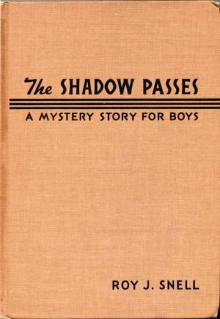 The Shadow Passes
The Shadow Passes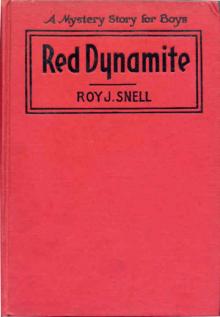 Red Dynamite
Red Dynamite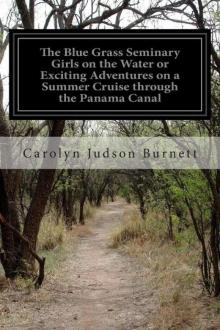 Blue Grass Seminary Girls on the Water
Blue Grass Seminary Girls on the Water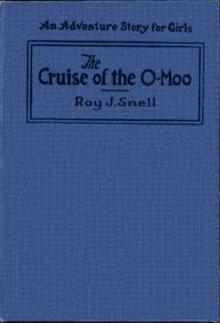 The Cruise of the O Moo
The Cruise of the O Moo